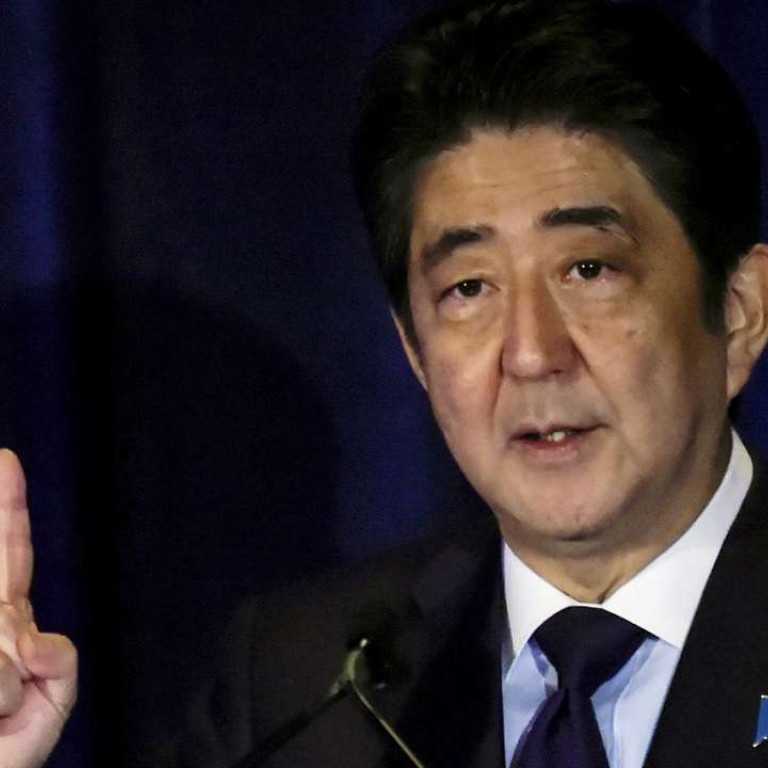
New | Japan’s Abe urges US Congress to ratify TPP trade deal “as soon as possible”
Japanese PM wants early implementation of 12-nation agreement
Japanese Prime Minister Shinzo Abe urged the US government on Monday to win Congressional approval for the Trans-Pacific Partnership (TPP) free trade pact “as soon as possible” so as to ensure an early implementation of the 12-nation deal.
“Japan and the US must each obtain domestic approval of the TPP as soon as possible for its early entry into force. Success or failure will sway the direction of the global free trade system, and the strategic environment in the Asia-Pacific,” Abe said in an address to an event in New York to promote investment in Japan.
Abe made the remarks as the TPP’s fate has become uncertain as both Democratic and Republican presidential nominees, former Secretary of State Hillary Clinton and business mogul Donald Trump, have voiced opposition to it amid rising populist forces in the US election cycle.

Abe pledged his utmost in getting the Diet to ratify the TPP -- a trade pact signed in February by 12 member nations including the United States and Japan but not China -- and enact related legislation during a 66-day extraordinary session to convene September 26.
“Japan will spare no effort, and we count on the US to do the same,” said the prime minister, who is visiting New York for the UN General Assembly and related meetings.
Abe said deeper economic ties among countries sharing fundamental values and a possible expansion of the membership will contribute to the stability of the region.
“This is the strategic significance of the TPP,” he said. “The TPP will be a platform for expanding a free and fair economic space in the Asia-Pacific.”
US President Barack Obama has pledged increased efforts to push the pact through Congress during the so-called lame duck session between the November 8 presidential election and his departure from office in January.
The TPP represents a major pillar of Obama’s policy of strategic “rebalance” in Asia, an initiative widely seen as a counter to the rise of China.
Covering about 40 per cent of the global economy, the TPP groups Australia, Brunei, Canada, Chile, Japan, Malaysia, Mexico, New Zealand, Peru, Singapore, the United States and Vietnam.
In a separate event to promote tourism in Japan, Abe spoke of Japan’s charm and attractiveness as a travel destination and encouraged Americans and others to visit the country in the run-up to the 2020 Tokyo Olympics.
“My country is further investing into offering omotenashi, or hospitality, from up north in Hokkaido to down south in Okinawa, with 2020 a target year,” Abe said, citing the number of foreign visitors more than doubling in three years to 20 million last year.

